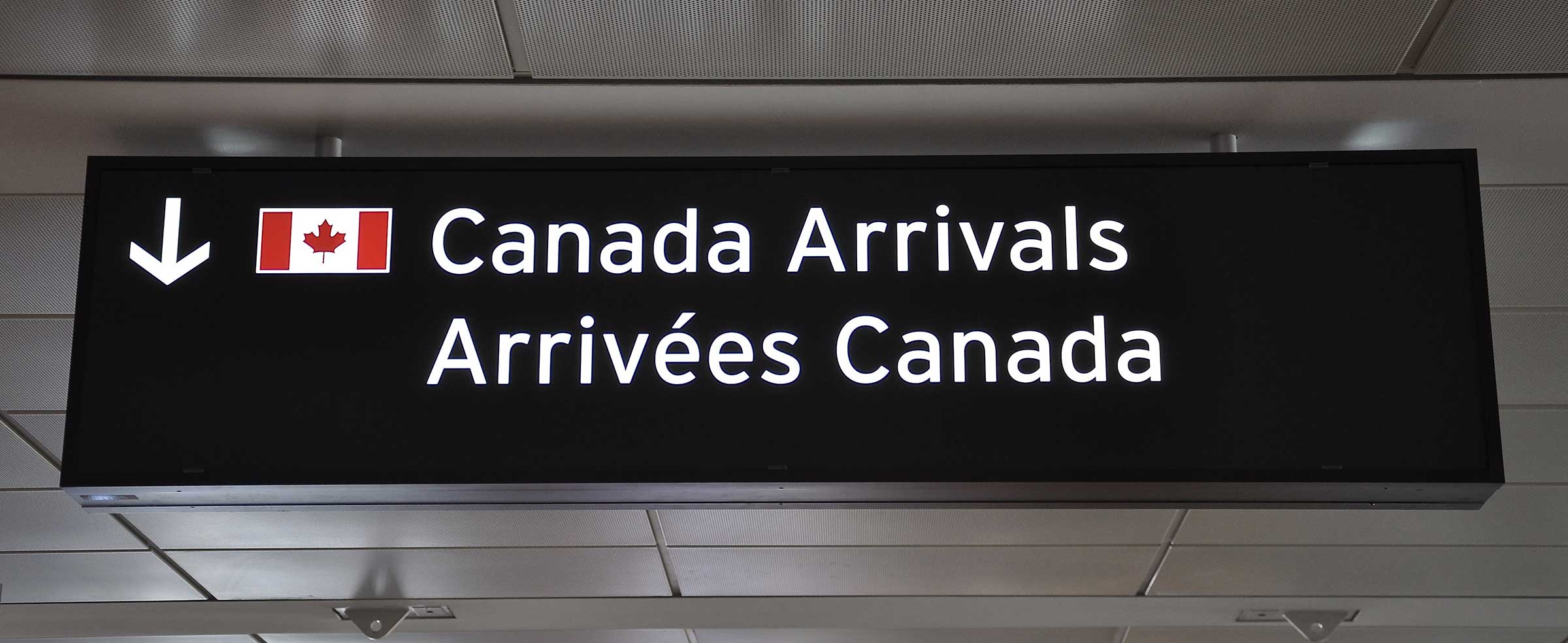Canadian public opinion on immigration and refugees

As part of its Focus Canada public opinion research program (launched in 1976), the Environics Institute updated its research on Canadian attitudes about immigration and refugees. This survey is based on telephone interviews conducted (via landline and cellphones) with 2,008 Canadians between October 7 and 20, 2019. A sample of this size drawn from the population produces results accurate to within plus or minus 2.2 percentage points in 19 out of 20 samples.
Executive summary
The 43rd Canadian Federal Election just concluded was a tightly-contested campaign in which the incumbent Liberal Government led by Justin Trudeau found itself in a tough fight for reelection just a few years after it took office on a promise of “sunny ways” and broad political support. Many anticipated that immigration might emerge as a major election issue that would be used by some if not all parties as a wedge to energize their base or peel away support from competitors. The recent influx of asylum seekers at the southern border in Quebec and Manitoba, the emergence of a new populist party staking a position against “mass immigration”, and increasing animosity toward migrants in the US and elsewhere has fed concerns that Canadians were becoming more anxious about current immigration policies and the flow of newcomers into their communities.
It did not happen. Apart from a few anti-immigrant billboards popping up, immigration and refugees did not feature prominently in the election campaign, and the Peoples Party of Canada attracted less than two percent of the votes, failing to elect a single MP to Parliament. Why these issues did not materialize can be explained by the results of the most recent Environics Institute Focus Canada survey, which was conducted in the final weeks of the campaign. This research reveals that Canadians as a whole continue to be more positive than negative about the number of immigrants arriving in Canada and the benefits they bring to the country’s economy. Moreover, public concerns about such contentious issues as whether newcomers are adequately embracing Canadian values and the legitimacy of refugee claimants have not increased over the past year; if anything they have moderated. Immigration was not a top of mind issue for the vast majority of Canadian voters from any political party.
As on past surveys, attitudes about immigration and refugees differ across the population. Positive sentiments are most prevalent among younger Canadians and those with a university education. Negative views are most evident in Alberta, among Canadians ages 60 and older, and those without a high school diploma. In Quebec, despite the recent controversy over its new legislation banning religious dress, public opinion about immigrants is as positive if not more so than in other parts of the country.
The largest divergence continues to be along partisan political lines, primarily between supporters of the Liberal Party, NDP and Green Party, who are the most positive about immigration and refugees, in sharp contrast with those who would vote for the Conservative Party. This gap in sentiment notwithstanding, immigration is not an issue that strongly divides Canadians (as the recent election demonstrated), and this stands in sharp contrast to the current electoral divisions in other western countries.
Like what you're reading? With our bi-monthly e-newsletter, you can receive even more with the latest details on current projects, news, and events at the institute.
Subscribe